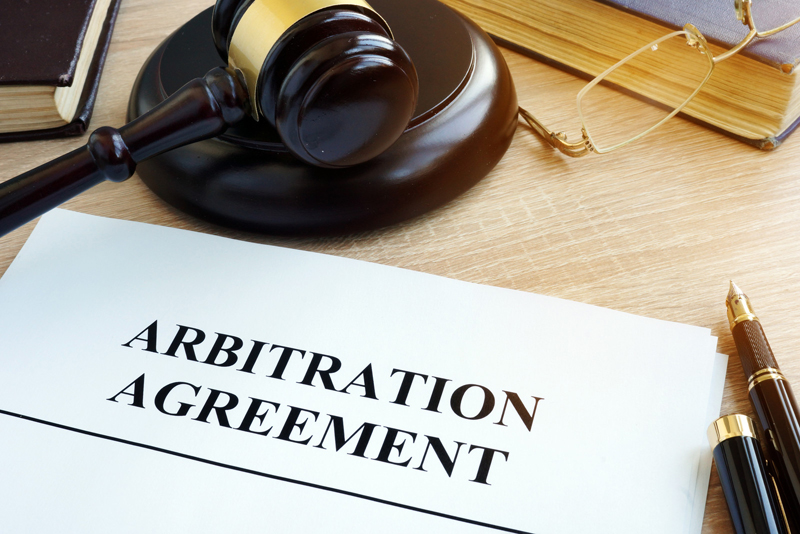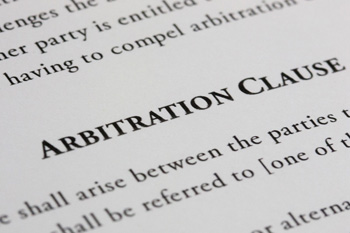The arbitration process is aimed at providing an efficient, quick and cost-effective way for the resolution of disputes outside the court. The American Bar Association (ABA) defines arbitration as a “private process where disputing parties agree that one or several individuals can make a decision about the dispute after receiving evidence and hearing arguments.” After deciding on and appointing the arbitrators, pre-hearing written submissions, digital file sharing, and arbitrations transcription services can support document production. While it is a popular and flexible method of resolving disputes, the process of resolving a dispute without going to court can be quite challenging. Here are six expert tips for conducting arbitrations:
- Embrace digitization: New technologies have done away with slow paper-based processes. Instead of using binders crammed with exhibits, lawyers can improve speed and efficiency by digitizing exhibits and projecting them on a screen, recommends an ABA article. Digitizing arbitration offers many benefits, including:
- paperless proceedings
- enhanced collaboration
- increased security for sensitive materials
- relevant documents can be found easily and highlighted as they are being discussed
- remote participation – allows parties, legal team members, technical experts and panelists to participate in arbitration proceedings in real time from remote locations
- saves time and eliminates the costs of printing and distributing multiple copies of documentation
- Transcriptions can outsourced to a legal transcription company and be consulted as soon as it is received
- By mitigating the logistical complexity of the hearing process, digital hearings speed up the time to resolution
- Use simple language and terms: Complex concepts must be explained in the simplest language. The author of the ABA article who is a commercial arbitrator says, “We are experts in applying the facts to the law, not in the manufacturing process of the left-handed widget”. The best way to handle this is to have someone to testify about the subject matter in layman’s language.
- Organization among arbitrators: According to a www.cpradr.org article, early in the proceedings, arbitrators should discuss among themselves the roles they will play in the proceedings leading up to the settlement. For instance, as the case proceeds, the tribunal may place one arbitrator in charge of preparing, a description of the procedural events taking place. Another arbitrator could be given the task of developing a draft of the portion of the award that deals with the claims and positions of the parties. Such organization early in the process can speed up the drafting process and provide the tribunal with a clearer understanding of the importance of evidence flowing in for their final decision-making.
- Maintaining a balance with regards to objections: Lawyers should avoid making too many objections or too few. As the procedure does not take place in the court, objections should be limited to important things. On the other hand, not raising objections to something that is objectionable may give arbitrators the impression that the lawyer is inattentive or lacks skills.
- Tell the client’s story effectively: This means presenting facts in a logical way so that everyone will want to accept your client’s story as true. Each event must be arranged as a sequence of the previous one. Structuring the problem will help you to automatically structure your thoughts. Using the facts of the case to your advantage requires knowing your case and its facts, looking at everything from every possible angle, and knowledge about the law and its implications (www. vismoot.pace.edu).
- Avoid procedural delays: Arbitration is more informal than litigation. Arbitrators are not restricted by the formal rules of evidence or legal procedural rules. Their role is to simply hear the evidence and the arguments of the parties, and make a final and binding decision. While acting with the greatest respect for the arbitrators and opposing counsel, it is crucial to avoid needless delay in procedural matters.
Finally, keep a record of the proceedings. A legal transcription company can help convert the audio and video recordings into accurate text files. Proper documentation of the process is crucial. In the case of non-binding arbitration where the agreement reached may not be enforceable under law, either party can demand a trial. In this case, review of the pre-trial arbitration transcripts can prove very useful for lawyers to formulate future strategies.


